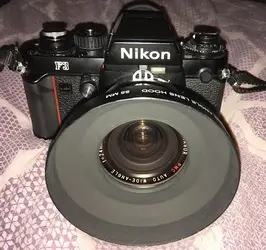My mirrorless Olympus E-M1 ran about 4 HOURS on a single battery. I needed THREE batteries to shoot a full day. And I had to charge three batteries each night, which meant either two chargers and two charging shifts, or three chargers.
I don't mean to change course, but... was this a photography vacation or a family vacation? When I was out in snowy 30-40 degF weather, shooting all day, I only used one-and-a-half batteries. I usually never have the camera on for longer than it needs to be; I turn it off when not using it. When on family vacations, I can go two days without having to charge it, using the camera when needed. Separately, when I was out on several hikes last year, out all day shooting, I never used more than a single battery to take hundreds of shots each day.
I'm not saying that mirrorless battery life isn't worse than DSLRs (because it is), I'm just surprised at the short-ish lengths you're getting compared to me?
Waday: what brand and model of mirrorless camera were you using? That could play a big part in battery life. Do you have only an EVF as a viewfinder/composing system, or also an eyelevel or "optical" type of viewfinder option? Do you have one of the new Sony mirrorless cameras with the longer, higher-capoability batteries? Some models of mirrorless cameras do not seem to have very long battery life.
Back to film and why it still exists: NOBODY (not Nikon,not Canon, not Fuji,not Sony) has ever come close to Tri-X Pan in terms of beautiful B&W
tonality. Does it have grain? Why yes, yes it does! Is it the highest-acutance film available? No, no it is not! It is the most-beautiful high-ISO B&W film? Yes, yes it is!

 ).
).







![[No title]](/data/xfmg/thumbnail/30/30860-944669dcf33f1f20df14586c78ed2608.jpg?1734158815)


![[No title]](/data/xfmg/thumbnail/30/30858-42113a4c092a5983afa30e5c35cce4d0.jpg?1734158808)

